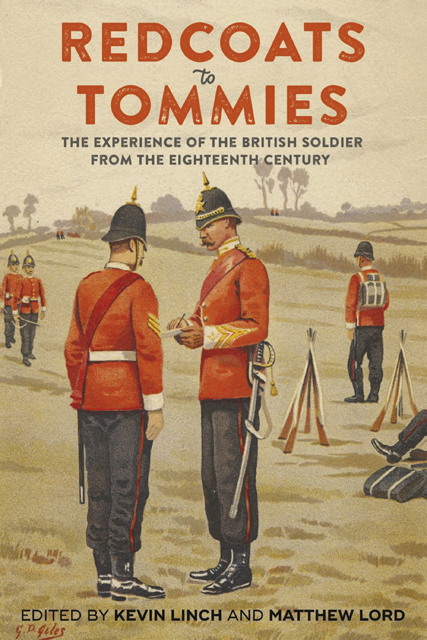1 - Citizen Soldiers: ‘Military Spirit’ and Recruitment in Britain during the Wars against France, 1793–1815
Published online by Cambridge University Press: 17 January 2023
Summary
The French Revolutionary and Napoleonic Wars faced Britain with a constant need for new soldiers. Britain had begun the wars against France in 1793 as a commercial country reliant on a powerful navy for her defence. Ten years later, Britain entered a new war with Napoleon with a different attitude. Once the standing army had been seen as a threat to liberty, and the ‘citizen soldier’ was created as a safer alternative more commensurate with political principles of personal liberty and independence of thought. These terms were now redefined under the circumstances of French continental hegemony and frequent invasion scares. It was no longer viable to view large standing armies as a liability, nor was it politically sound to keep citizen soldiers independent of higher authority. The rapidity of this change in attitude, however, prompted a vivid political debate over the compatibility of citizenship and military service that shed interesting light on the changing concepts of ‘citizenship’ and ‘Britishness’ at the turn of the nineteenth century. Not for the first time, and certainly not for the last, a debate revolved around whether a larger professional force was required to defend the British Isles while simultaneously conducting offensive operations abroad, and how such a force might be raised. Under such circumstances – and as happened again during the invasion scares of the 1850s, and in the run-up to the First World War – the term ‘citizen soldier’ moved away from its radical roots and towards official acknowledgement that civilians could not only be relied on, but expected, to take up arms in defence of their nation.
The impact of the French Revolution and Napoleon on the construction of Britishness has long been of interest to historians, who recognise that, while Britain outwardly appeared to withstand the storms of revolution and Napoleonic continental hegemony, there were serious consequences for politics, society and ideas of ‘manliness’. In the past decade, Kevin Linch has argued that the wars with France ‘had a long-lasting impact on the British Army and its relationship to the state and society’; and Catriona Kennedy has identified the significant ‘production of a newly virilized and martial model of gendered national identity’ as a result of the considerable expansion of the British military force and its pervasive influence throughout all levels of British society.
- Type
- Chapter
- Information
- Redcoats to TommiesThe Experience of the British Soldier from the Eighteenth Century, pp. 19 - 39Publisher: Boydell & BrewerPrint publication year: 2021

